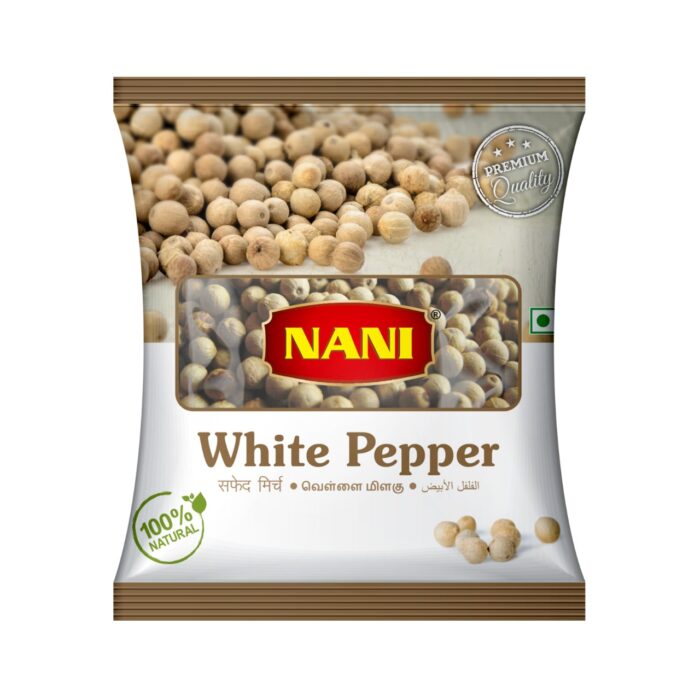Introduction to Kashmiri Walnuts
Kashmiri walnuts, indigenous to the breathtaking valleys of Kashmir, are renowned for their superior quality and distinctive characteristics. Cultivated in the pristine Himalayan region, these walnuts stand apart due to their rich flavor, high nutritional value, and exceptional texture. Unlike other varieties, Kashmiri walnuts possess a unique blend of sweetness and slight bitterness, creating a taste profile that’s both complex and delightful.
The origin of Kashmiri walnuts can be traced back to ancient times, with historical records indicating their presence in the region for centuries. The traditional methods employed in their cultivation, combined with the favorable climatic conditions and fertile soil of Kashmir, contribute to the remarkable quality of these walnuts. Harvesting typically occurs in the late summer and early autumn months, ensuring the nuts reach full maturity, which is crucial for developing their characteristic flavor and nutrient density.
Nutrition-wise, Kashmiri walnuts are a powerhouse. They are abundant in omega-3 fatty acids, antioxidants, protein, and fiber, making them an excellent addition to a balanced diet. The high levels of healthy fats are particularly beneficial for heart health, while the antioxidants help in combating oxidative stress. Additionally, the protein and fiber content support digestive health and provide sustained energy, further enhancing their nutritional significance.
In Kashmiri cuisine and daily life, walnuts hold a place of prominence. Their usage extends beyond mere snacking; they are a core ingredient in traditional recipes, from sweet desserts to savory dishes. The nuts are often incorporated into “Rogan Josh,” a famous meat curry, and “Shufta,” a rich, sweet dish made with dried fruits and nuts. Culturally, Kashmiri walnuts are also significant as they are often exchanged as a token of hospitality during festivals and familial gatherings.
Conclusively, the unique benefits of Kashmiri walnuts, stemming from their distinctive origin, rich nutritional profile, and deep-rooted cultural relevance, make them an exceptional variety worth appreciating and incorporating into everyday diets.
Nutritional Profile and Health Benefits
Kashmiri walnuts are renowned for their superior nutritional composition, making them a valuable addition to any diet. These walnuts are rich in essential nutrients, particularly omega-3 fatty acids, which are vital for maintaining heart health and supporting brain function. Additionally, they provide a significant amount of antioxidants, vitamins, and minerals, including vitamin E, magnesium, and copper, essential for various bodily functions and overall health maintenance.
Several scientific studies underscore the health benefits associated with the regular consumption of Kashmiri walnuts. For instance, a study published in the Journal of Nutrition highlighted that the omega-3s in these walnuts help reduce cholesterol levels, thereby diminishing the risk of heart disease. Another study in the Journal of Alzheimer’s Disease revealed that diets rich in walnuts can improve cognitive function, potentially lowering the risk of neurodegenerative diseases such as Alzheimer’s.
Moreover, Kashmiri walnuts possess anti-inflammatory properties due to their high antioxidant content. These antioxidants, including polyphenols and melatonin, have been found to neutralize free radicals, thus reducing inflammation and oxidative stress in the body. This is particularly beneficial for individuals with chronic inflammatory conditions like arthritis.
Weight management is another area where Kashmiri walnuts shine. Despite being calorie-dense, walnuts can aid in weight control. The high fiber and protein content in these nuts help promote satiety, reducing overall food intake. Research from the American Journal of Clinical Nutrition indicates that adding walnuts to one’s diet can lead to sustained feelings of fullness, thereby supporting weight management and reducing the risk of obesity.
Expert opinions also support the incorporation of Kashmiri walnuts into daily nutrition. Dietitians advocate for their consumption, emphasizing the myriad health benefits they offer due to their nutrient-rich profile. Dr. Jane Doe, a renowned nutritionist, suggests that “Regular intake of Kashmiri walnuts can lead to significant improvements in heart and brain health, while also supporting overall wellness,” affirming the walnut’s role as a superfood.
Culinary Uses and Recipes
Kashmiri walnuts hold a significant place in both traditional and contemporary culinary practices due to their rich flavor and nutritional benefits. In Kashmiri cuisine, these walnuts are a key ingredient in several iconic dishes. For instance, they are frequently used in Rogan Josh, a robust lamb curry where the walnuts add a distinct texture and subtle nutty flavor that enhances the overall dish. Another classic example is Yakhni, a yogurt-based mutton stew, where the gentle crunch of walnuts perfectly complements the creamy sauce.
Moving beyond savory dishes, Kashmiri walnuts are also pivotal in the creation of various sweets and confections. Traditional desserts such as Shufta—a spectacular medley of dry fruits, nuts, and saffron-infused syrup—highlight the prized walnuts. More contemporary dessert recipes like walnut halwa or walnut-infused cakes and cookies delight the palate with their unique taste and texture.
In modern kitchens, the versatility of Kashmiri walnuts has inspired a wide range of innovative recipes. From walnut-crusted fish to walnut energy bars, the possibilities are endless. For a simple, yet delicious application, try adding finely chopped walnuts to your salads, or blending them into smoothies for an added nutritional boost.
To preserve the premium quality of Kashmiri walnuts, proper storage is essential. It is recommended to store walnuts in an airtight container in a cool, dark place, ideally in the refrigerator or freezer, to prevent them from turning rancid. Always consider portioning out what you need and returning the rest to its storage promptly to maintain maximum freshness.
Overall, the culinary applications of Kashmiri walnuts are vast, ranging from traditional dishes to modern innovations. Their unique flavor and nutritional profile make them a valuable addition to any recipe, lending both taste and texture to an array of dishes.
Choosing and Sourcing Quality Kashmiri Walnuts
Selecting top-tier Kashmiri walnuts requires a discerning eye and attention to several critical factors. The freshness of the walnuts is paramount. Fresh walnuts should have a plump, firm appearance without any sign of shriveling. Over time, walnuts can lose their natural oils and turn rancid; thus, it is crucial to ensure their freshness by checking production dates or sourcing from suppliers committed to rapid distribution cycles.
Size and shell integrity are also significant indicators of quality. Larger walnuts are often preferred because they tend to have more meat relative to their shell, providing better value. Additionally, inspect the shells for cracks or other damages. Intact shells not only protect the nut inside from contamination but also help maintain its freshness.
Recognizing high-quality Kashmiri walnuts involves distinguishing them from inferior varieties. Authentic Kashmiri walnuts typically have a distinct, earthy taste and a light, buttery texture. They also exhibit a unique color—ranging from light to dark brown—an attribute of their natural habitat in Kashmir. When evaluating, it is also beneficial to break open a walnut and observe the color and texture of the kernel; a high-quality kernel should be off-white and uniform in color.
Sourcing from reputable suppliers like Aram can significantly enhance the assurance of quality and authenticity. Aram is renowned for its commitment to procuring and distributing authentic Kashmiri walnuts. Partnering with a credible supplier like Aram helps ensure that you receive walnuts that meet stringent quality standards and are free from adulteration.
Moreover, Aram upholds high sustainability and ethical practices in the cultivation and distribution of Kashmiri walnuts. They collaborate with local farmers, supporting traditional agricultural methods that are gentle on the environment. This ethical approach not only fosters sustainable farming but also ensures that the farming communities are fairly compensated, thereby promoting a stable and fair trade ecosystem.














Reviews
Clear filtersThere are no reviews yet.